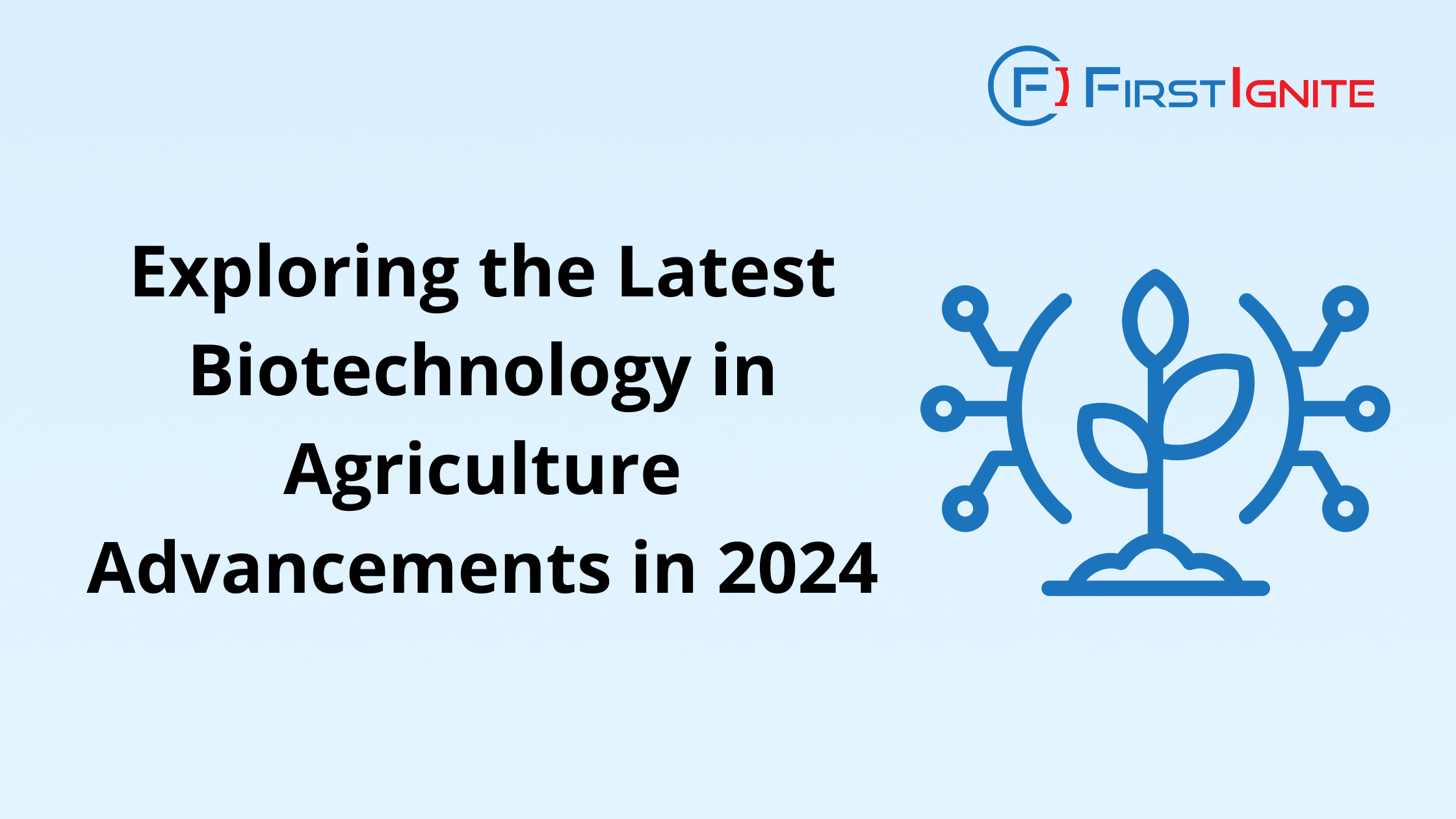
Introduction to Biotechnology in Agriculture
As we enter a new era, the intersection of agriculture and biotechnology is set to transform food cultivation and sustainability. This article explores the groundbreaking advancements of 2024, highlighting how biotechnology is enhancing crop genetics, nutritional profiles, and sustainable practices, promising a revolutionary shift in food production and resource management.
Role of Artificial Intelligence (AI) in Biotechnology in Agriculture
The integration of Artificial Intelligence (AI) and machine learning is revolutionizing agricultural biotechnology by enabling data-driven decisions, optimizing crop yields, and streamlining the agricultural value chain. AI allows for the analysis of vast genomic data, identification of genetic markers for desirable traits, and acceleration of new crop varieties with improved resilience, nutrition, and environmental adaptability, promising unprecedented precision and efficiency.
Innovations in Agricultural Biotechnology in 2024
In 2024, agricultural biotechnology is set to revolutionize food production and resource management with transformative innovations. Key advancements include CRISPR-Cas9 gene editing for developing crops with enhanced traits and resilience, precision farming through IoT sensors and drones for real-time data and optimized resource use, and the development of advanced biofuels and biomaterials from plant sources. Additionally, biotechnology will enable personalized nutrition solutions, functional foods, and sustainable aquaculture through disease-resistant seafood and integrated aquaponics systems. These breakthroughs promise to reshape the future of agriculture with greater precision, sustainability, and efficiency.
University Advancements in Biotechnology in Agriculture
In 2024, U.S. universities are leading the charge in agricultural biotechnology research and innovation. Institutions such as the University of California, Davis are making strides with advanced gene-editing techniques and sustainable agricultural practices. Additionally, the University of Queensland in Australia is pioneering AI-powered precision farming and novel biomaterials. These universities, among others, are at the forefront of biotechnological breakthroughs, driving innovation and shaping the future of agriculture with their cutting-edge research and collaborative initiatives.
Applications of Agricultural Biotechnology in Various Industries
In 2024, agricultural biotechnology is reshaping various industries with its transformative impact. Biotech-derived crops are enhancing pharmaceuticals and nutraceuticals, leading to personalized treatments and functional foods. The textile industry is advancing with sustainable, high-performance materials like biobased fibers and self-repairing fabrics. Innovations in bioenergy are making plant-based biofuels more viable, reducing reliance on fossil fuels. In cosmetics, biotech is driving the creation of effective, eco-friendly products. Additionally, biotech is improving animal feed, boosting livestock health, and supporting sustainable protein sources such as cultured meat. These advancements are revolutionizing production, consumption, and sustainability across sectors, paving the way for a more resilient and equitable future.
Conclusion: The Promising Future of Biotechnology in Agriculture
In 2024, agricultural biotechnology is revolutionizing food production, resource management, and sustainability. Advances in Artificial Intelligence, gene editing, and precision farming are enhancing efficiency and environmental stewardship. With leading universities and industries adopting these innovations, we are witnessing a significant transformation in our food systems and environmental interactions. Embracing these technologies is key to fostering a more sustainable and equitable future.




